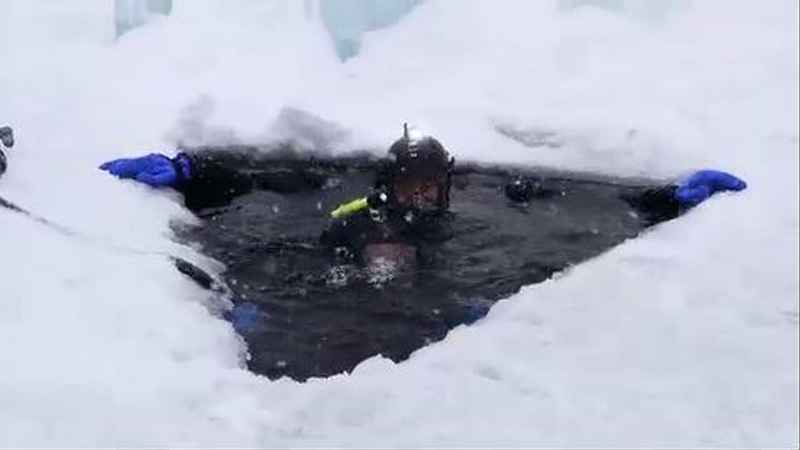Navy divers train at Camp Ripley in freezing conditions
[anvplayer video=”5009310″ station=”998122″]
Navy divers were at Camp Ripley this week.
The divers were in Minnesota to practice using their new equipment, which will be used in missions. Nearly 40 divers are now certified in ice diving following the Camp Ripley training. As KSTP found out, the conditions in Little Falls were perfect for just that.
"We are a hidden gem in the center of the nation," said Brigadier General Lowell Kruse, Camp Ripley senior commander.
Ferrell Lake at Camp Ripley is the Minnesota gem where, this month, Navy divers from the east coast broke through ice and went underwater all to prepare for arctic missions.
"They’re diving with a GPS device that allows them to have some idea of where they’re at," Kruse said.

[KSTP]
One of the greatest assets of Camp Ripley, according to Kruse, is its ability to train almost any mission during any season.
"Here on Ferrell Lake, they train to practice a lot of their emergency actions," Kruse said.
This includes underwater rescues, offensive operations and moving obstacles.
"That’s the harshest environment I’ve ever been in, and I’ve been a diver for 16 years," said Stephen Eide, a Navy Diver Chief with Mobile Diving and Salvage Unit (MDSU) Two.
Eide said the recent bitter cold conditions helped the nearly 40 Navy divers out of Virginia imitate real missions.
"We heard the locals start saying, ‘Oh, it’s about to get cold, and when you’re in Minnesota and the locals are saying it’s gonna get cold, you batten down the hatches," Eide said.
They trained the past few weeks testing new gear and scenarios like cold shock in 36 degree water with temperatures above ground 50 to 60 degrees colder.
"It’ll take your breath away … All of the classes got to see at least three or four days of that temperature," Eide said. "Ice diving is where we see more issues on equipment, because of the cold temperatures … It can be a very dangerous thing to do."
"They have to be trained how to stay calm, how to slow their breathing down," Eide added.